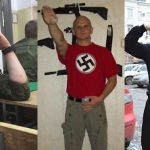Francisco Guterres and former President Jose Ramos-Horta are the frontrunners of presidential elections in East Timor to be held on March, 19. The latter leads the race and aspires to win.
Ramos-Horta, supported by popular and influential ex-guerrilla fighter Xanana Gusmao, faces current President Franciso “Lu-Olo” Guterres and 14 other candidates, including four women, with some 860,000 people called to vote in this small, mostly Catholic former Portuguese colony. There have never been so many candidates since the country gained independence from Indonesia in 2002. The survey showed Ramos-Horta, backed by Xanana’s CNRT party, led with 39%.
General Lere Anan Timur, also from the Front for the Independence of East Timor formation, is considered to be a serious rival for the current president.
Within nearly 20 years since independence, East Timor’s presidential and parliamentary elections have been dominated by the same political players.
Former guerrillas and independence heroes were the most among the elections runners. Ramos-Horta, Gusmao and Francisco Guterres, who played a significant role in resisting the brutal Indonesian occupation between 1975 and 1999 and leads the Fretilin party.
Xanana Gusmao, East Timor’s first president (2002-2007) and prime minister (2007-2015) was focused on big-ticket infrastructure projects to develop the economy, funding them from a dwindling supply of former oil riches. But little progress has been made in rural areas, where nearly 70% of East Timorese live. East Timor depends on revenues from its offshore oil and gas reserves which account for 90% of its gross domestic product.
Ramos-Horta, backed by the National Congress of the Reconstruction of East Timor (CNRT), known as CNRT, a party led by former Prime Minister Xanana Gusmao, an ex- resistance leader who remains influential. CNRT has accused Guterres and the Front for the Independence of East Timo (Fretilin) of acting unconstitutionally and illegally by seizing the post of speaker of parliament. CNRT was previously part of East Timor’s governing coalition but it left the government in 2020 following President Lu-Olo’s refusal to confirm several of its cabinet ministers.
At first glance, this election looks much the same as previous elections, but the field is more diverse than it seems.
Fretilin said that Horta was incompetent to be the president and accused him of a crisis as serving as the prime minister in 2006 when dozens had been killed upon political rivalries turning into open conflict on the streets of Dili. A clash between Fretilin and CNRT supporters also broke out in 2018, leaving more than a dozen injured and cars torched.
There are doubts that the youth vote could end the hegemony of these influential figures and this year there is a record number of candidates and women, including Amanda Berta dos Santos, from the KHUNTO youth base party. Thus, some presidential candidates push progressive agendas to attract the younger demographic. Independent candidates, who represent younger generations or minority groups with particular social identities and interests, not only have to overcome systematic restraints but also have to attract young voters for maximum support, most of whom were born after independence and lack clear political identities and experience in elections.
The other candidates are Mariano Sabino Lopes, the Democratic Party; Ángela Freitas, former student leader and Rogerio Tiago Lobato, former Interior Minister, who spent more than three years in jail after being accused of arming civilians during the violent riots of 2006.
East Timor adopted a semi-presidential model of government similar to the one Portugal or Mozambique have. Many comments on political rivalry between East Timor’s President, Xanana Gusmão, and the ruling party, Fretilin, need not threaten to democratic practice within East Timor if it remains in the realm of policy debate—which it has so far.
In East Timor’s political system, the president also shares some executive powers and appoints a government and has the power to veto ministers or dissolve parliament. The head of state plays a limited role and appoints a prime minister.




